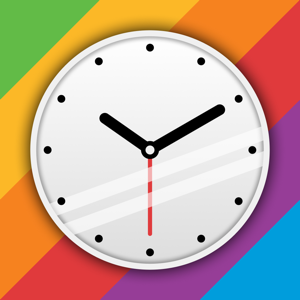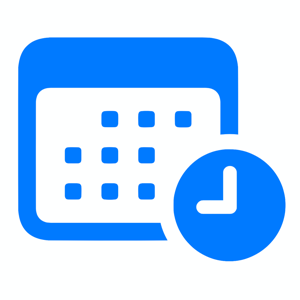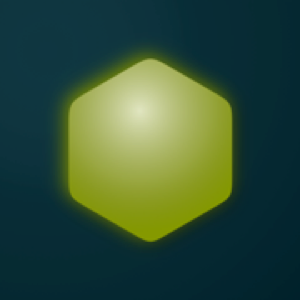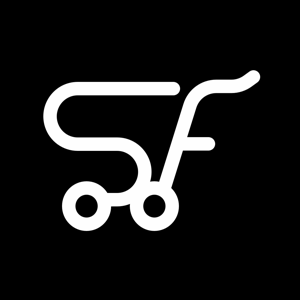Issue #45 - Jordan Morgan
Happy Monday, everyone!
We made it to Issue #45! Thank you to everyone who read last week’s issue ❤️
Newly Released and Updated Indie Apps
Here are some newly released and newly updated apps from this past week! If you would like to possibly see your app in this list, please submit your app to the look at me form 👀





Today’s Spotlighted Indie Devs
📆 Today I’m featuring Jordan Morgan.
I haven’t had a chance to fully read the book yet but it’s guaranteed a best-in-class book for developers of any experience. This book is an accumlation of Jordan’s knowledge from the beginning to his exit of Spend Stack and beyond. There are tips and techniques to make an app great including how to make the app accessible to all users. It teaches app design that tailored to the iOS ecosystem. And it includes a bunch of frameworks like SiriKit, Widgets, and more! The book is released in beta right now for 20% but it will come with free updates and examples… for life 🙌 Oh, and one of the coolest parts is the examples are both UIKit and SwiftUI! Jordan is amazing at everything he does and he is a staple in the iOS community. I highly recommend giving A Best-in-Class iOS App a read! There is something in there for everyone to learn ☺️
👉 Please make sure to follow them or support them anyway you can! 😇 I’m excited to share their indie dev stories.
Indie Devs

Jordan Morgan
iOS Engineer at Buffer and writer of A Best-in-Class iOS App and Swiftjective-C
Jordan Morgan
Q&A
1) What is your name? Where do you live?
Jordan Morgan. Nixa, MO.
2) Introduce yourself. Education? Background? Main job? Interests outside of tech? Interests inside of tech?
Well hello! I am (spoiler already) Jordan. I’ve been hackin’ primarily on iOS apps since iOS 4. I tried to kickstart a coding career around 2009 by learning myself, but quickly found out the only way I was going to learn was if a teacher was teaching me. So, I got a Computer Information Science degree at my local community college. It was also nothing like the hit comedy show Community, which was very disappointing.
I work as a senior iOS engineer at Buffer. I really love it there, and we have a tiny team of two (including myself). I’m coming up on six years there and have loved it! One of the great things about working there is our CEO is very passioante and supportive of side projects, and is always giving us pointers with our own. That led to my own indie apps and other initiatives I work on.
Outside of tech, I spend all of the rest of my time with my three kiddos (Benny, Remy and Baylor or as I call them, Team BRB 😀) and wife Jansyn. I also love video games and really any sci-fi show. Right now I’m playing through the Mass Effect Legendary Edition games, even though I played the originals a million times.
3) Have you ever considered yourself an indie developer?
Yes and no, and it’s a very interesting question because as a community we’ve never really defined what an indie developer is. On one hand, does it mean you’re independent in that…..your app solely supports you financially and you have no other job? Or does independent mean that you independently release and make your own software?
For me, I actually really enjoy my day job and so long as I can do that and make indie apps, I will! There’s so much I learn from both that I would really hate to miss out on either one unless I was forced to choose.
4) What got you started/interested in creating your own applications outside of your “normal” job?
I grew up playing legos a ton. The idea of thinking up something and building it was so freeing and rewarding. I’ve always kept that with me through my adult years. As such, I’ve often described programming as “adult legos” - you can think of literally anything and build it. And then anyone in the world can put it on their phone.
That’s insane to think about! Aside from that, I have a lot of entrepreneurial tendencies that I love to explore, and shipping stuff helps me do that.
5) How do you balance your time between friends/family, work, hobbies, and indie dev?
By one simple rule, “The main thing is to keep the main things the main thing” which means as long as I am giving my time and attention to the most important things, and then trickling down the rest of it - I’ll be good. That means I never put work over my family, I never put any job over my mental and physical health, I never put my indie stuff over my own day job, and on and on.
We are all busy in life, but at the same time there is more time than you realize. 24 hours each day is more than enough time to build the life that you want to live. To be more specific about indie happenings, I always get into work an hour or two early to do indie stuff. Then, I switch that off and go to my day job duties. After that’s done, I squeeze in another hour for indie things every now and then.
That’s absolutely essential but what it means is that when I get home, I am only a husband and dad - not an indie developer, or engineer at Buffer or anything else other than those two things.
6) Best-in-Class App - There are so many things I could ask you about but you just are almost done writing and whole book so I want don’t want to get these too out of hand 😉 So first of all… Congrats on the beta release of “A Best-in-Class App: The Book” 🥳 Seems like it’s a huge hit already! What sparked you to write a book? It seems rather daunting 😅 Have you always enjoyed writing and have been good at writing? Or is it something that you’ve practiced and grown to love?
As far as writing a book, I have a huge Type A personality. I live on checklists. In fact, I track all of my goals in a daily, weekly, monthly and yearly fashion. My wife thinks that is insanely stressful (she balances me out with a more ‘Go with the flow’ type of lifestyle) but for me it works. This is what led to my initial “Best-in-Class iOS App” post, which inspired the book.
I wanted to create a checklist I could benchmark my own apps against, and it grew from there. As far as writing, I’ve always loved it. In school, it was far and away my favorite thing to do and learn about. So, I’ve always written stuff. A book has always been a natural fit for me, and I even would like to write a novel one day. Knowing that once I start making another app, I may not ever stop, so it was do or die time for writing a book.
7) Best-in-Class App - On top of writing the actual words to the book, I believe you are providing a bunch of example apps to go with it. This is such a great idea! I love reading but I learn better from examples. I’m super excited to see everything you pack with the book. How do you think of the examples you want to include with the book? Are you pulling any inspiration from apps that inspire you? Does having examples go with the book make the whole process easier or harder? 😇
I decided early on that instead of making a traditional app showing off the concepts, I wanted to instead making things as simple and to the point as possible. Don’t get me wrong, doing an app demoing off everything I’m talking about would be awesome - but I don’t think it’s the best avenue to show something that’s easy to parse and understand.
So, as I write chapters, I almost think about code samples in terms of what I would maybe stash away in a note taking application somewhere to use later. I want to-the-point, demonstrable things that people can get right into and then change and mess around with it to better understand them.
As far as making things harder? Absolutely! I even kicked things up and notch and decided early on that the book would include SwiftUI and UIKit. So yeah, this thing is gonna be baking in the oven for quite some time - which is one reason I did the beta launch, to get it out now so people can enjoy it and help me shape it going forwards instead of doing one huge launch a year or two from now.
8) Spend Stack - Another big congratulations to Spend Stack being acquired! Watching your Spend Stack journey has inspired me and almost everyone I know 🥰 I think the thing that has amazed me the most is how long you spent working on Spend Stack! That single focus is impressive. What was your initial goal when starting Spend Stack? Was it just an app for you? Was it your playground to learn more about the Human Interface Guidelines? Did you want to get acquired? A lot of us start apps for different reasons so curious what yours was 😁
When I started Spend Stack, I just wanted a way to solve one specific problem:
How much would apples cost if they are priced by the pound, have a 20% discount and have sales tax figured in?
No other app could do that (and maybe still!) and so in the early days, it actually had a lot of grocery list vibes. Then, I realized I could use it for a bunch of other contexts and it grew from there. I did the first release early on, likw 2012 or 2013, and it flopped.
That, as you mentioned, it was got me really into design and UX. I knew the idea was good, it just wasn’t package right and it didn’t look nice. I realized I had to try and master those things to make something that the rest of the world would enjoy, too. Years on, it almost became this kind of “thesis project” to see if I could make the app my best-in-class iOS app post talked about - could one app check all of those boxes?
9) Spend Stack - I think one of the things I most appreciate about you is your priority management. You always put family, health, and your full-time job in front of your indie development on Spend Stack. Yet somehow you managed to create a best-in-class app and exited with it 🤯 I struggle because I tell myself I need large chunks of time to work on things which is hard to get 🤷♂️ How do you plan features and manage tasks around the time slots you gave Spend Stack? Do you have any priority management or time management tips for the rest of us? 🙃
I tried a bunch of different things to manage an indie app in terms of software, and none of them worked very well. Either they were built for teams and had a bunch of stuff I didn’t need, or became a dumping ground of things I would never execute on. Learning what to prioritize is something I’m still learning because as Spend Stack was being made and released, I kind of just kept making what I personally wanted. But, it wasn’t just mine anymore - and so I started to incorporate most user feedback into it which definitely helped.
There is no art to it, I think. We tend to complicate these things but it’s really about benchmarking work against your stated goal. If your app’s mission statement is to be a great budgeting app, are the things you are building helping you achieve that?
10) Spend Stack - Outside of Human Interface Guideline stuff… What was the neatest thing you learned while working on Spend Stack? What was the most difficult probably you faced?
The neatest thing I learned was how amazingly important design is. Spend Stack’s initial launch had the same features as the version I had launched all of those years ago - but one hit and the other flopped. Why? Because of the design, definitely. Here’s a tweet comparing the two versions: https://twitter.com/JordanMorgan10/status/1265663472425205762
People could understand it and grasp it, which led them to buying it. Of course, there are tons of tiny lessons I’ve learned along the way around marketing and similar things, but that was the biggest one.
The biggest challenge was probably local persistency. There are so many options out there still. In the end, I went back to the most basic approach - just using SQLite and it ended up working very well for me. Even things like showing the count of items within a list were updated for “free” with database triggers.
11) What’s next?! I mean… you exited an app and are almost done writing a book 😛 Do you have any other apps in the works? Are you going to become a pilot? I can’t really rule anything out here.
Oh, a million things I want to do! Once the book is done, one of my ideas I’m most excited about is a sort of product management app that’s built just for indies or the solopreneur. It’s something I made for myself to manage Spend Stack and tasks towards the end, but I think it could help other indies too. Nobody really focuses on those of us who might just do this part time, or as a side gig or even someone who is full indie but is just developing the app themselves.
Also, my Dad was a pilot, so maybe I’ll take some lessons from him!
12) What’s been the hardest part of being an indie dev? What the most fun part of being an indie dev?
The hardest part is knowing you can’t do it all. Especially since I’m not too keen on quitting my day job to go full indie, it means I have to come to terms with knowing I’ll have way more ideas than time to build them. I made peace with it long ago, but sometimes you just want to shut out the rest of the world and hack on something for a week! But, that’s not real life - so I focus on what I can build and release instead.
The fun parts are literally everything else! The thrill of launching, making new friends, seeing the things other people make, seeing people pay you money for something you created out of thin air - I love it!
13) Is there anything else you’d like to tell the indie dev community about you?
I think you’ve done a great job with your questions! I guess I’d say if you want to see someone bark on Twitter over how to make quality iOS apps, I might be your jam!
14) Do you have any other indie devs that readers should follow / lookout for?
Oh, so many. Here are a few lately, but there are way more than this I admire:
I love what Ryan Ashcraft is doing with Food Noms. It’s a well built, iOS-y app in all the right ways. Another one is Majd Taby is doing awesome with Dark Room - it doesn’t get any better than winning an Apple Design Award.
Thank you to everybody who made it to this footer! You either spent the time to read or took the effort to scroll 😊
Make sure to visit https://indiedevmonday.com/subscribe to get an email of future issues!
And go to Twitter and give @IndieDevMonday a follow… or multiple follows if you manage more than one Twitter account 😜